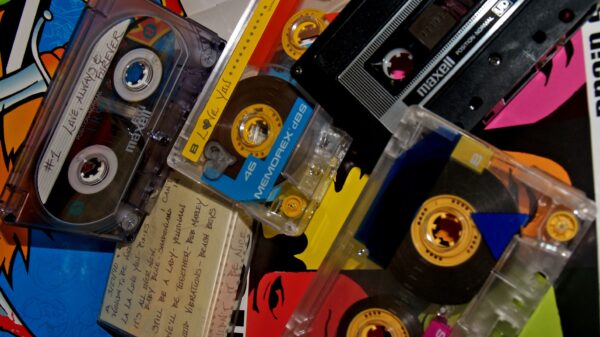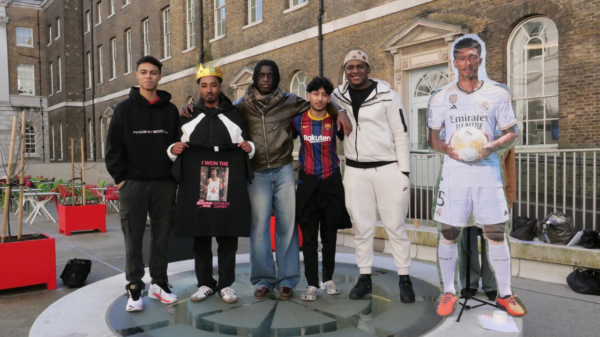Staff writer Deborah Solomon explains the roots of the current conflict in the Democratic Republic of the Congo and argues that the colonial past still influences the priorities of Western media today.
Since the start of the millennium, various newspapers, including The Guardian, Al Jazeera, and The New York Times have published articles here and there, explaining the origin of the war in the Democratic Republic of the Congo (DRC). Even so, the news coverage of the situation has been considerably scarce in comparison to conflicts elsewhere. This is certainly curious, as more than 6 million people have perished and nearly 7 million people have been displaced in a crisis which began upon the conclusion of the Rwandan genocide in 1994 but has roots dating back at least 139 years to the Scramble for Africa. In the words of British Member of Parliament, Jeremy Corbyn, “Today’s humanitarian crisis in the DRC did not emerge out of nowhere. It is an enduring legacy of colonial theft, violence and exploitation.”
To give a brief overview of the situation in the DRC (see the linked articles above for more in-depth examinations of the current conflict), in 1885, per the agreements made in the Berlin Conference, King Leopold II of Belgium created the Congo Free State, privately owning and colonising the region. During his notorious reign, Leopold sanctioned various atrocities, causing the deaths of between five and ten million Congolese people in what has been referred to as the “hidden holocaust“.
Independence for the Congolese came in 1960, and then in January 1961, Patrice Lumumba, the nation’s first prime minister, was brutally disposed of by means of Belgian-American collaboration. In 1965, in a coup supported by the CIA, Mobutu Sese Seko seized power and ruled the nation for over 30 years. The Rwandan genocide occurred during his lengthy reign. The New York Times explains that after the genocide, “…over a million people of the Hutu ethnic group fled Rwanda for Congo… Among the Hutus were many genocidaires, those who had been responsible for killing millions of Tutsis.” This led to the First Congo War in 1996, soon followed by the Second Congo War in 1998. According to Georges Nzongola-Ntalaja, a Congolese professor specialising in African and global studies, “Had the genocide not happened, probably we [Congo] would not have faced all of these issues.”
The issues he refers to? The abuse and global exploitation of the miners and the country’s mostly foreign-controlled mineral resources, corruption, fighting between the potentially Rwandan-backed M23 and over 120 other armed groups and militias, resulting in massacres, widespread rape, and more. If these issues were brand new or just emerging, the international neglect of the DRC might be forgiven. Nonetheless, the nation’s anguish has been allowed to continue, whether genocide at the hands of a 19th-century Belgian king, nearly 30-year-old wars, or the most recent fighting between the Congolese army and the M23, with alarmingly inefficient and inadequate international intervention compared to wars in other parts of the world.
The war in Ukraine, for example, which began in 2014, and was escalated by Russia’s invasion on 24 February 2022, has been covered relentlessly by the Western media, before and especially after the 2022 invasion. Considering the scale of the war, widespread coverage and a strong immediate international response from the West, including NATO and the EU, is understandable. To compare part of the international responses to the respective wars, The Telegraph reports that as of 2022, “The total funding to the DRC humanitarian response plan was $876m in 2021, of the $1.98 billion requested. In comparison, the Ukraine humanitarian appeal launched on March 1 was almost fully funded the very same day.”
Although the United Nations Organisation Stabilisation Mission in the Democratic Republic of the Congo (MONUSCO) was formed in 1999, the mission has been considered unsuccessful, with Kinshasa accusing MONUSCO of “failing to protect civilians from the armed groups that have plagued the east of the country for 30 years” and “[demanding] the withdrawal of the remaining 13,500 troops and 2,000 police in regions bordering Rwanda and Burundi”.
The unfortunate truth is that MONUSCO was created to stop the Second Congo War, meaning that the absence of effective intervention is not for lack of global awareness of the country’s crisis, but is instead a deliberate choice to ignore the people’s continued suffering. The tragic irony is that one would hope that the UN and governments across the globe would learn after a very similar crisis occurred 30 years ago, with the global neglect of the Rwandan genocide amidst unremitting international intervention and extensive media attention during the Kosovo war. How often will the world apologise and tout the phrase “Never Again” once it is too late? Must history be doomed to repeat itself?
Furthermore, regarding media coverage, according to a YouGov survey commissioned by Oxford University, “The news media are broadly seen to be doing a good job with coverage [of the Ukraine War], especially on keeping people up to date on the latest news…” Can the same be said for the coverage of the situation in the DRC? Ask yourself how often you have seen news coverage about the DRC’s war in the last 10 years (or more). Compare your answer with how often you have seen news about Ukraine.
This is not to minimise or belittle the significance of the devastating Russia-Ukraine war or other cataclysmic global conflicts consistently making headlines. The matter at hand is simply to ask why the DRC has been so grossly neglected. Arguably, the DRC war, which has been raging on for decades longer than the current Russia-Ukraine war, ought to have more, if not at least equal, coverage. And yet, it doesn’t. How could this be?
A possible answer is offered by former professor of journalism, Roy Greenslade, who coined the term “hierarchy of death” in a 2007 article for The Guardian. Essentially, the term means that the deaths of non-white ethnic minorities matter less to the Western media. Greenslade, a white British man, argues that “The deaths of non-white people in foreign parts – and, [he] would contend, often at home – are never accorded equal status by the white, Western media.” In his article, Greenslade applied this hierarchy of death to his comparison of the 32 deaths in the 2007 Virginia Tech shooting which received “blanket coverage”, and the nearly 200 dead in Iraq which were “barely reported”.
As the author and Guardian columnist, Owen Jones, did in his 2015 article, the hierarchy of death can also be applied to the situation in, and more specifically, to the international response and news coverage of the DRC war. It could be argued that Western media covers the war in Ukraine with such zeal simply because the war is closer to home and poses a larger security threat to Europe, whereas the war in the DRC is an African issue that the West need not concern itself with.
However, when the human toll becomes as grotesquely preposterous as the one in the DRC, can it still be argued that any ignorance or excuse of the situation is justifiable? Surely the deaths of so many people should evoke grief and outrage that transcends continents. Were the approximately 6 million killed and 6.9 million displaced not black Africans, but white Europeans instead, would the international community and Western media deign to so ignore their plight?
The people in the DRC are not merely statistics or numbers that exist to encourage fatalistic stereotypes about the African continent being a perpetually war-torn wasteland. Each death is the premature end of a real person’s life, which leaves behind a traumatised family and generally goes unreported by the international media, only to be added to the vaguely approximated multi-million casualty toll. American philosopher Judith Butler argues that for a life “to be regarded as valuable, it has to first be regarded as grievable. A life that is in some sense socially dead or already ‘lost’ cannot be grieved when it is actually destroyed.”
Regarding wars in the Global South, including the DRC, Indian author and journalist Anjan Sundaram writes, “The neglect of such war zones is the consequence of an international news system still structured by colonial relationships.” If Butler and Sundaram are correct, then it can be reasonably concluded that the lives of the Congolese will continue to be disregarded and insufficiently grieved, as the best resource for bestowing value upon them, the international media, is still influenced by a colonial mindset. If the media’s colonial ties are to be blamed, they may also explain why the neglect of African lives has become a repeated occurrence throughout history, with continuously underreported and ignored genocides.
While these concepts, along with the “hierarchy of death“, paint a gruesome picture and may offer a rude awakening for some, the bottom line is that the war in the DRC is one which has been allowed to continue largely unchecked and for far too long. Clearly, based on the media coverage of the war in Ukraine today and the war in Kosovo in the 1990s, the international media is entirely capable of more than adequately reporting on complicated conflicts.
And yet the war in the DRC today, alongside other conflicts across the African continent such as the war in Sudan and similarly to the Rwandan genocide of the 1990s, is ignored with a horrifying, almost admirable level of commitment. Greenslade’s “hierarchy of death” offers a plausible explanation for why this is the case, but whether the aforementioned academics and authors go too far is for you to decide. Nevertheless, the fact remains that those at the bottom of the hierarchy do not have the luxury of pondering these ideas and must simply watch as history repeats itself around them.

















